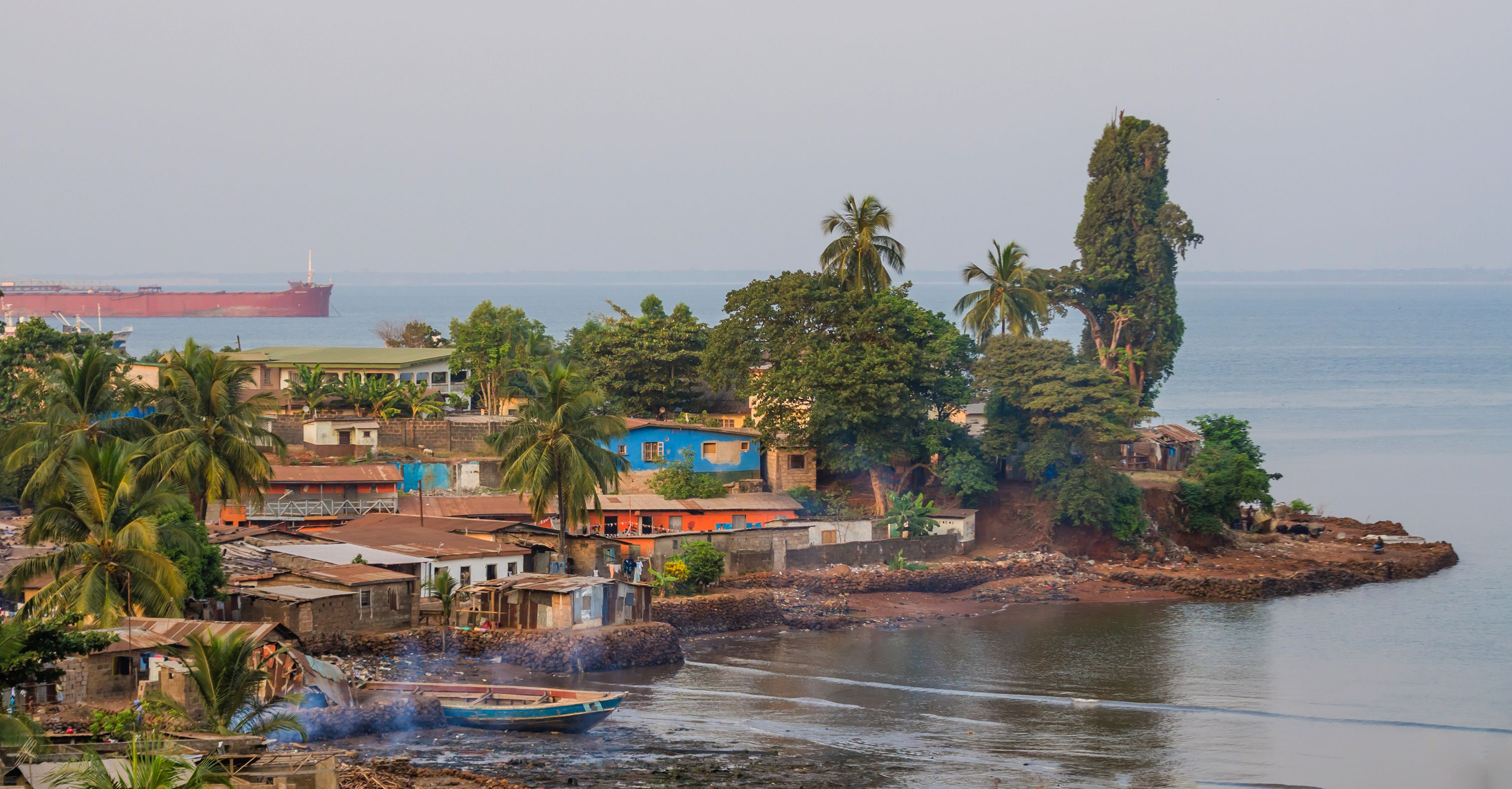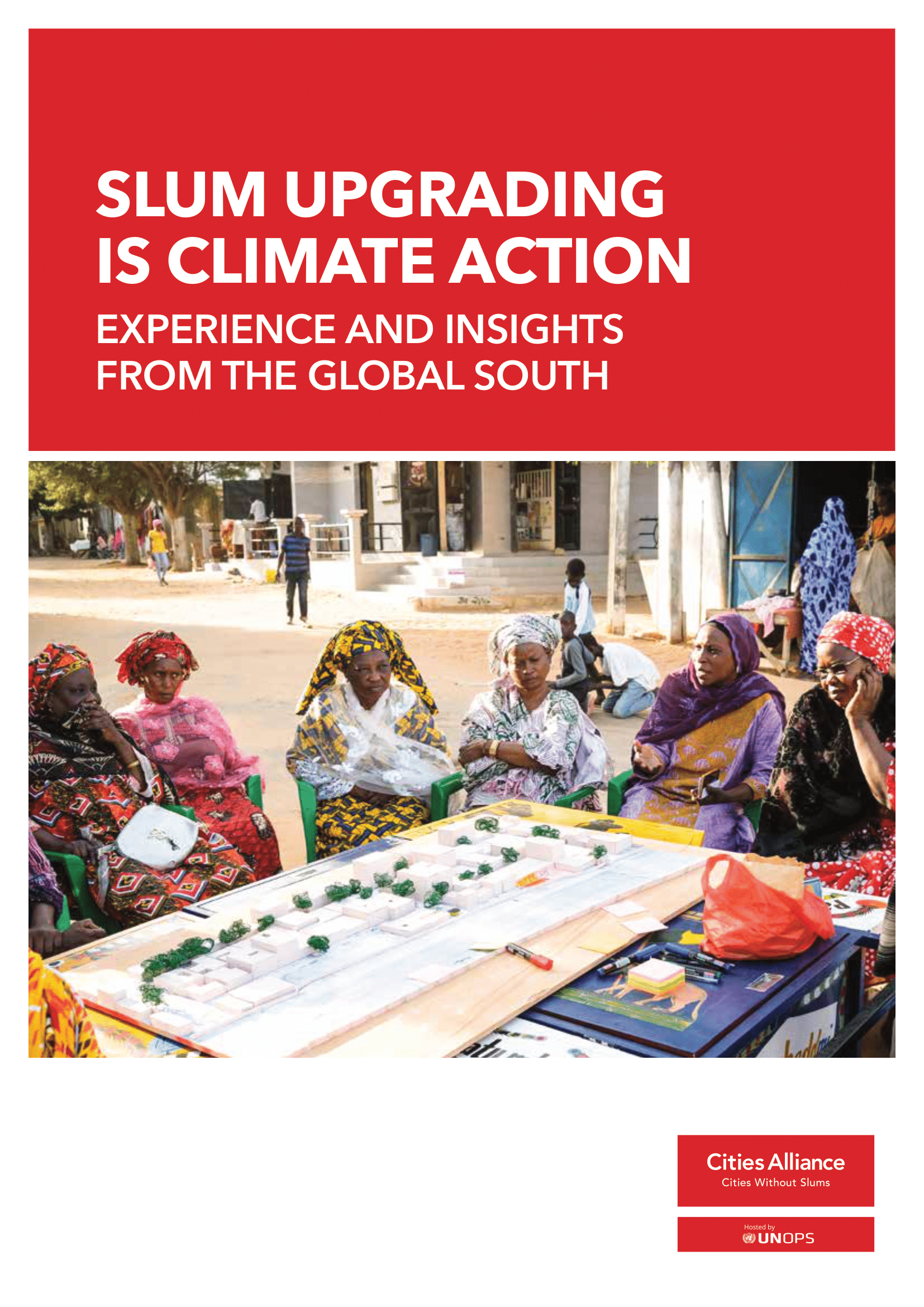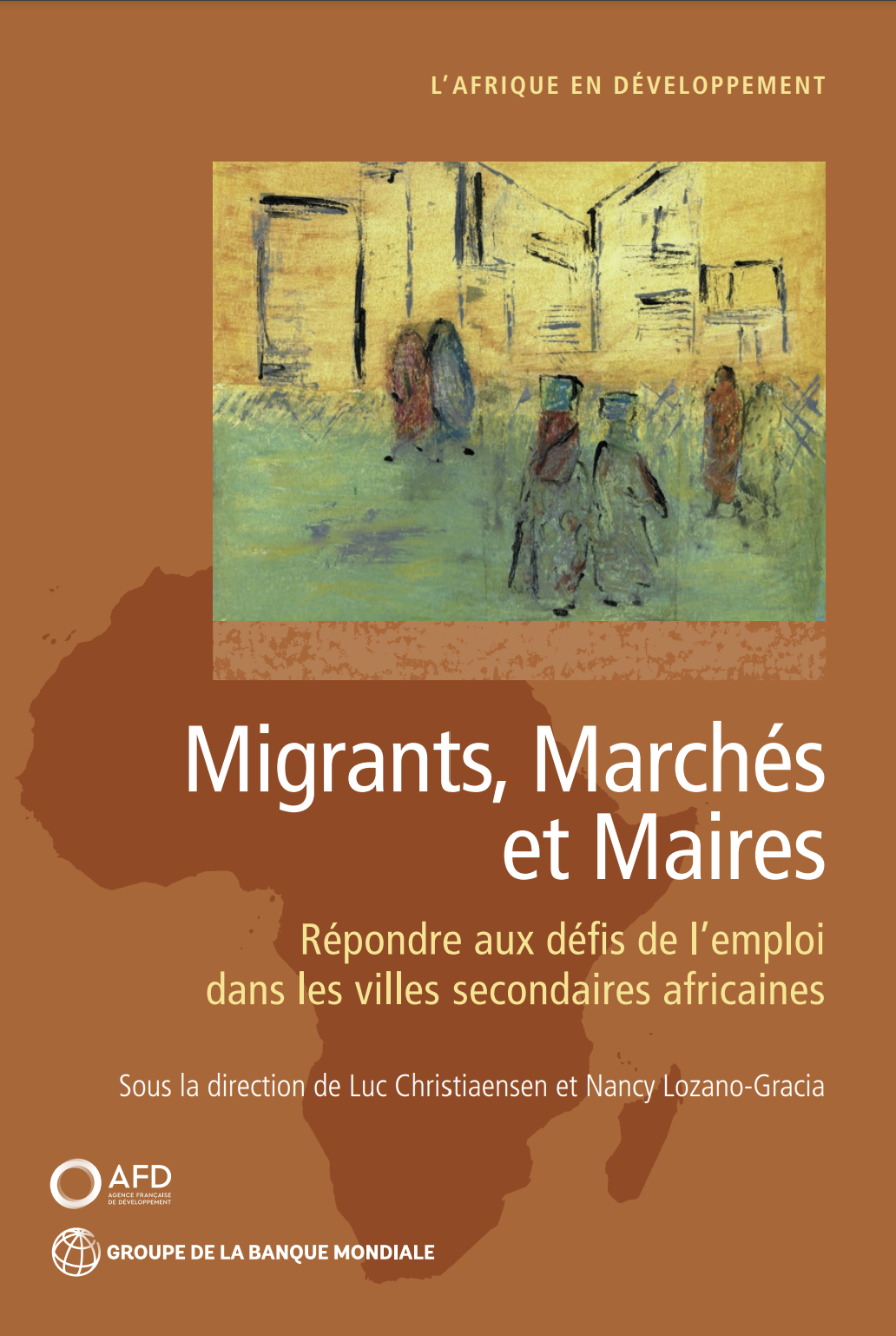- Who We Are
- How We Work
- Regional / Country Initiatives
- Legacy
- Core Themes
- Working Groups
- Portfolio & Results
- Newsroom
- Resources
Slum Upgrading is Climate Action


The new Cities Alliance report Slum Upgrading is Climate Action: Experiences and Insights from the Global South is the outcome of a recent knowledge-sharing workshop in Freetown, Sierra Leone with Slum Dweller International (SDI) affiliates from nine countries on community-led climate action in informal settlements.
Urban poor residents bear the majority of climate risks and are forced to use inadequate building materials and construction methods due to economic constraints, making their homes more susceptible to damage from climate stresses. However, despite these vulnerabilities, organised communities of the urban poor are uniquely positioned leaders in local climate action in their cities and settlements.
The communities represented in the SDI network have proven to be champions in innovative, integrated and replicable climate responses. Their community-led efforts often provide the foundation for city-scale transformation.
Participatory upgrading is a transformative process, building climate resilience and promoting more equitable urban development. However, collaborative efforts and additional financing will be critical to scale these efforts and achieve the full potential of community-led, city-wide transformative climate action.
By working with informality rather than against it, upgrading acknowledges and supports the realities of urban poor residents.
National and local governments, donors, climate finance agencies and other stakeholders must recognise that slum upgrading is an effective form of climate action that addresses environmental challenges and climate risks along with unmet basic service and housing needs as well as socio-economic inequalities. The urgency for effective, integrated and inclusive urban adaptation strategies is growing and these strategies need to be rooted in local realities and address local needs.
Urban poor possess the networks, skills and capabilities necessary to initiative and implement locally driven climate action, effectively channelling climate finance to those communities most in need. However, to realise impact at scale, partnerships with local government and other stakeholders - crowding in funding and implementing solutions at city scale - are essential.
Despite the urgent need for additional funds, the funding gap is widening. Our recent report Climate Finance for the Urban Poor: A Review of Global Climate Funds revealed that only 3.5 per cent of global climate finance has been allocated to projects that include the urban poor. SDI's experience with testing and adapting various funding mechanisms at the community, city and national levels presents an invaluable resource in the quest to unlock financing for locally led adaptation.
The future of the approach championed by urban poor federations relies on numerous factors, including:
- Stakeholders recognising that slum upgrading advances climate action and social justice.
- Local governments institutionalising co-production through participatory planning and inclusive governance platforms.
- Local governments and donors recognising informality as an integral part of the city and crucial areas for climate action.
- Stakeholders including vulnerable and low-income communities in decision-making processes around climate change.
- Funders working with urban poor federations to co-design and capacitate new city-level funding facilities, blending climate finance with local resources.
As global climate conversations continue, this publication is a call to governments, funders and development partners to act decisively in moving toward tangible, integrated and community-led solutions in settlements and cities.


